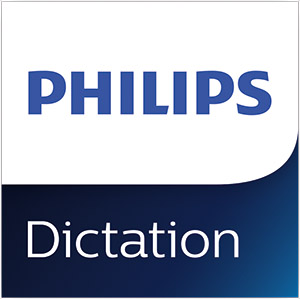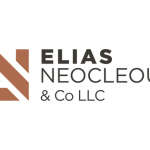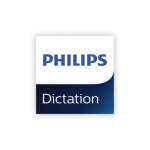Speech is more than just another channel of communication. It is also the driving force to improve your firm’s productivity
From the technology perspective, speech recognition has a long history with several waves of major innovations. Most recently, the field has benefited from advances in deep learning and big data. The advances are evidenced not only by the surge of academic papers published in the field but more importantly by the worldwide industry adoption of a variety of deep learning methods in designing and deploying speech-recognition systems.
So it is no surprise that speech recognition software has become exceptionally sophisticated over the past years, even developing industry-led versions to recognise legal and medical vernacular. Further, with smartphones in our hands daily, we are getting more used to creating text with our voice rather than typing.
Like it or not, personal smartphones will hold the firm’s data
A recent report by Deloitte predicts that over the next five years, smartphone adoption among UK adults will increase seven percentage points, surpassing 92%, with overall adoption across developed countries reaching 90%.
Owners will interact with their phones on average 65 times per day in 2023, a 20% increase over 2018.1 Consumers use their smartphones and tablets for communication and entertainment, but a great number of adult workers have already incorporated their personally-owned devices into the professional spheres of their lives.
Bring your own device (BYOD) policies raise data security and client confidentiality concerns depending on how solicitors protect their devices. Lawyers use their personal smartphones for client-related email and text messages but also to dictate client letters or confidential memos. Further, they continue working on their smartphones during the commute home, frequently also logging additional time connecting to the office remotely, and already have reviewed and responded to new emails before stepping back into the office the next morning.
Cyber crime is evolving – safeguard your data to protect your reputation
Cyber crime is evolving exponentially. Physical thefts and online phishing scams are known to interconnect, with cyber criminals developing refined mechanisms to steal data and devices.2 They spoof an email from Apple alerting the victim that their smartphone has been found. Wanting their device back, the victim clicks on the link that will compromise their iCloud credentials, which is reused to unlock the stolen phone. The thieves will then subcontract third-party iCloud phishing services to unlock the devices. These cyber criminals use a set of tools that include MagicApp, AppleKit and Find My iPhone framework to automate iCloud unlocks in order to resell not only the device but also the victim’s data in underground markets.
So if you think your smartphone passcode number will protect your data, think again. Law firms have a duty of confidentiality and must ensure their client’s data is safeguarded by specific levels of security. A lost or stolen smartphone without robust security features in the hardware and software means valuable, protected client information could be held hostage by fraudsters, damaging the reputation of the client and the firm.
Can the cloud be your safe route?
Those types of risks should prompt firms to explore more secure mobile-dictation technology options and associated BYOD policies. Lawyers and their assistants can then enjoy the productivity of working from any location, as well as benefiting from strong security to protect clients’ confidential data and the firm’s reputation.
The cloud is proving to be a highly-efficient and secure platform not only for data storage but also to support document creation workflows. Through voice-recorder apps, lawyers working at the firm or offsite can dictate on their smartphone or on a handheld recorder and then transfer the encrypted recordings to the cloud. From there, cloud-based dictation-workflow management systems offer options for how those recordings are transcribed and formatted into documents.
But what’s wrong with the status quo?
The traditional method is for the lawyers’ assistants to access and transcribe the recordings in the cloud, but integrating speech recognition in to the workflow is proving to be a smarter alternative for firms seeking to achieve efficiency gains and significant savings.
Speaking is seven times faster than typing, as shown by a study with researchers basing their findings on experiments with professional typists.3 So it is no wonder that an increasing number of law firms are integrating speech recognition in to their workflow process, as it considerably speeds up their document-creation turnaround time.
Time is money – so get ahead with speech recognition
An average page of text takes approximately two minutes to speak but 14 minutes to type, which means speaking presents an 86% time saving. In turn, that translates to massive cost savings for firms that charge on an hourly-rate basis. For example, a £300-an-hour solicitor or legal executive would lose about £70 typing one page of text when they could use speech recognition to create a document in a fraction of time and employ their time in a far more profitable manner.
Winning hearts – the key to succeed
Integrating mobility and speech recognition to achieve a modern, new way of working will certainly increase the firm’s productivity, realise savings and improve client service; however, staff might not readily embrace changes on their working practices.
Lawyers can experience disruption and annoyance if the security policies or features make the technology difficult to use, and legal support staff can feel redundant by the automation of their admin work.
When firms are exploring their voice-technology options, they need to ensure that the functionality is similar to dictation tools lawyers are accustomed to, so disturbance from their work is kept to a minimum. On the other hand, the firms must also generate effective communication channels in which legal support staff not only express their concerns but also learn that there is huge opportunity for career growth once time-consuming admin tasks are taken care of.
Articulate the future and celebrate success
Prosperous firms over the years have intentionally recruited bright and intelligent people. By successfully articulating the positive impact of new technology on their employee’s working practices, the firm will find many champions who will nurture their peers. When it comes to change, technology is the enabler, but engagement is the key to succeed.
Engage with staff and they will recognise that the firm they work for is putting in place the best tools to magnificently thrive and compete in an ever-changing commercial world.
1. UK: The Future Of The Smartphone: The Next 5 Years. Deloitte, 28 February 2018, Mondaq
2. Physical Theft Meets Cybercrime: The Illicit Business of Selling Stolen Apple Devices, 14 November 2017, Trend Micro TrendLabs Security Intelligence Blog
3. Contact Speech Processing Solutions for detailed information
For more information, please contact:
Florian Schwiecker, vice president and global sales leader, Speech Processing Solutions Germany
T: +49 3026 3959 557
E: florian.schwiecker@speech.com

To return to the Law Tech Focus menu, please click here.
Speech recognition takeaways
Accuracy
Speech-recognition technology has advanced greatly, with professional software achieving up to 99% accuracy, even in noisy environments. Industry-led software recognises legal and medical vernacular, ideal for lawyers and healthcare professionals.
Usability
User experience is critical, therefore consider ergonomics when selecting devices. A lawyer dictating for long hours at the firm will find a hand-held microphone more comfortable than a smartphone. Employees working both on and offsite may need a professional voice recorder with WiFi capabilities to create documents faster, as these devices achieve better speech-recognition accuracy results.
Simplicity and speed
It will not be the speech recognition solution that limits the speed you work at. Several clicks, pop-ups, passwords, keystrokes, saving to queues and authorisations will annoy and slow you down. Use integrated speech-driven workflows to take the strain. A few simple voice commands can speed you through hands-free reporting, and eliminate the grind and irritation of repetitive tasks.
Invest in professional solutions
There are free versions of speech recognition software out there, but will they integrate flawlessly with your document creation workflow? Will the firm’s IT waste days configuring this integration? Can the solution be centrally managed to ease future software and firmware releases? How accurate will end documents be? By investing in a professional speech recognition product, you will not only free your firm from a great deal of pitfalls but also truly improve productivity, savings and client service delivery.













